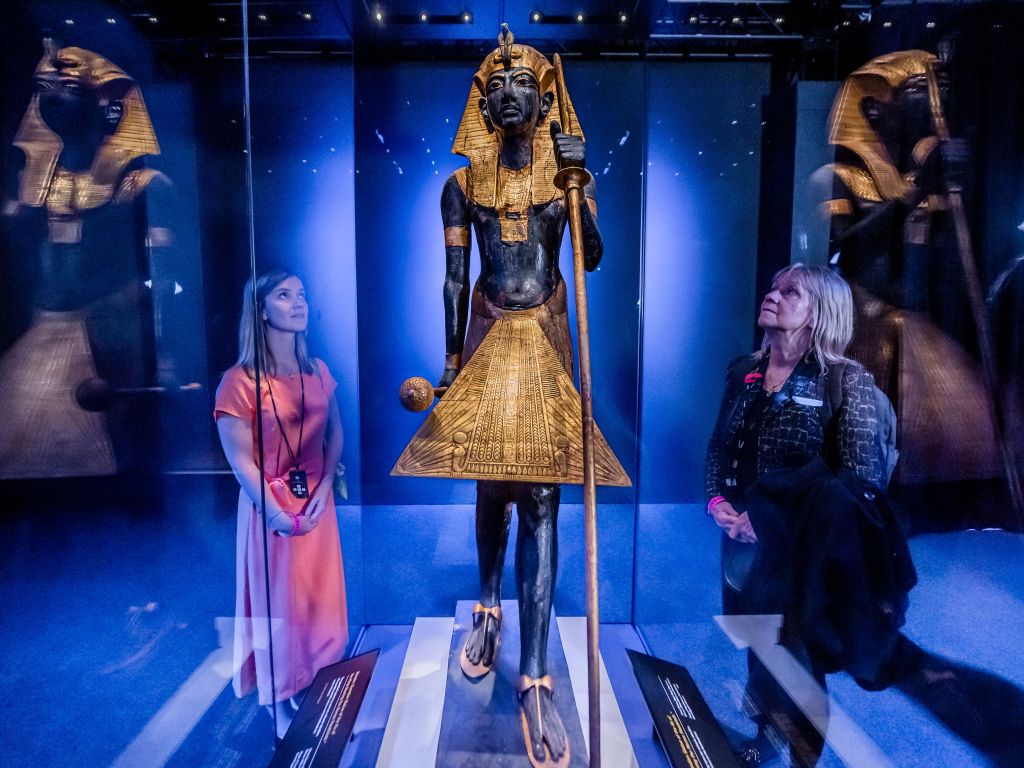[ad_1]
Before U.K. museums shuttered because of Covid-19, more than half a million people visited London’s Saatchi Gallery to see “Tutankhamun: Treasures of the Golden Pharaoh,” a blockbuster exhibition of priceless Egyptian artifacts on worldwide tour. The exhibit, originally planned to run through May 3, will reopen as lockdown restrictions ease nationwide. But a BBC News Arabic investigation suggests that the deal to bring artifacts in the show from Egypt to England, brokered between the Egyptian government and a private company, may have violated Egyptian antiquity laws.
The exhibit was proposed by famed Egyptologist Zahi Hawass, a controversial figure in Egypt who served as Minister for Antiquities under president Hosni Mubarak’s regime, in collaboration with the New York–based events company IMG. More than 130 artifacts are included, three times the quantity included in previous traveling exhibitions centered on Tutankhamun. The show has been billed as “the final chance to see these glittering world heritage artifacts” before their permanent installation at Giza’s Grand Egyptian Museum, which is slated to open next year.
The investigation, led by Egyptian journalist Gehada Abba, centered on the contract between the Ministry of Antiquities and IMG, which was signed in 2017. At that time, Egypt’s Antiquities Protection Law stated that artifacts of unique value—meaning irreplaceable, or the only copy of such an object—may only be loaned to public bodies such as “museums, scientific institutions or states.” In 2018, the law was amended to permit the international exhibition of some artifacts for a “limited period,” barring those of unique status. According to the report, officials attempted to make a case in the suit for the antiquities being part of a larger series.
“Egyptian antiquities are humanity’s ancient heritage,” Sayed Said, an Egyptian lawyer who has filed a case in state council against the tour, told the BBC. “It’s not permissible to treat them in a monetary or materialistic way.”
The Saatchi Gallery and IMG did not immediately respond to ARTnews‘s requests for comment.
In a statement to the BBC, IMG said it followed all procedures required by the Egyptian Ministry of Antiquities, and that the contract was approved by the Supreme Council of Antiquities and the Prime Minister of Egypt. Hawass has stated that he is “a paid consultant to Exhibitions International and IMG for the exhibition and that matters of legality were for the Egyptian Government.”
[ad_2]
Source link


